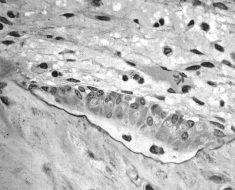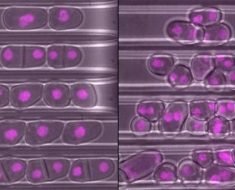Ketogenic dietary intervention may inhibit onset and progression of neuroendocrine tumors
A recent Cell Death and Disease study evaluated the effect of ketogenic dietary intervention on neuroendocrine tumors.

Background
The pancreas acts as both endocrine and exocrine organs. It functions as an endocrine organ by releasing hormones and polypeptides, such as glucagon and insulin, which regulate blood sugar levels.
These hormones are released through pancreatic islet cells. When pancreatic islet cells become malignant, these are referred to as pancreatic neuroendocrine tumors (PanNETs).
The incidence of PanNETs is significantly less with 0.43 per 100,000 persons. However, in the last two decades, its prevalence has been increasing rapidly. Although the majority of PanNETs have occurred sporadically, 10% are linked with underlying genetic issues, such as multiple endocrine neoplasia type 1 (MEN1).
PanNETs are commonly found neuroendocrine tumors (NETs) in MEN1 patients. These patients are prone to developing NETs in other organs too (for example, the pituitary).
Based on tumor characteristics, PanNETs are categorized into two groups, namely, functional and non-functional tumors. The functional PanNETs are associated with tumors that secrete biologically active hormones and cause hormone syndromes. It must be noted that around 90% of PanNETs are in the non-functional group.
PanNET progression has been associated with liver metastasis. As per the treatment, patients who have metastatic disease cannot be subjected to re-sectioning surgery. Patients with multiple non-functional PanNETs are not offered surgery as a therapeutic option.
Furthermore, the majority of drugs available for PanNET management exhibited marginal improvement with regard to tumor shrinkage. These observations indicate the urgent need for effective interventions to prevent PanNET's progression. The Men1f/f-RipCre+ mouse develops PanNETs and pituitary NETs and this mouse model is used to study the disease in vivo.
Both human and mouse models have shown hyperinsulinemia enhances tumor development in common cancer types including breast and pancreatic cancers. These studies have also shown that reduction in insulin levels decreases tumor development. Previous preclinical studies have revealed that dietary interventions that lower blood insulin levels improve cancer outcomes. Typically, a low-carbohydrate ketogenic diet reduces serum insulin levels without having any adverse effects.
About the study
The current study evaluated the impact of a low carbohydrate diet on PanNET initiation and progression using a non-functional PanNET mouse model. Here, the experimental mice were fed a very low carbohydrate diet, which is also referred to as a ketogenic diet.
In this study, Pancreatic β-cell-specific Men1 deficient mice were developed by crossing mice carrying Menf/f with Men1f/f-RipCre+ mice. The mice were backcrossed against C57BL6 at least 8 times before they were used for experiments. By the end of 45 weeks of age, most male Men1f/f-RipCre+ mice developed PanNETs, while the female mice developed pituitary NETs.
Mice were fed with normal diet consisting of carbohydrates (49.8%), protein (25.1%), fat (4.8%), fiber (4.4%), and ash (7.0%) containing minerals and vitamins or Ketogenic AIN-76A-Modified Diet that contained 3.2% carbohydrate, 75.1% fat, 8.6% protein, 4.8% fiber and 3.0% ash.
Study findings
The current study revealed that metabolic intervention with a ketogenic diet could significantly inhibit the onset and progression of non-functional PanNET and pituitary NET in a mouse model.
Consistent with this study's findings, a previous study highlighted that the ketogenic diet induces an anti-cancer effect. More research is required to better understand the changes induced by the ketogenic diet on cancer epigenome.
Several studies have advocated the safety profile of this diet using mice models for cancer studies. In the future, the effectiveness of the combinations of a ketogenic diet with other anticancer therapies in alleviating PanNETs and pituitary NETs could be assessed.
This study also revealed that higher blood glucose levels are related to poorer outcomes in patients with PanNET, particularly those receiving chemotherapy.
Interestingly, a previous study has shown that metformin, a blood sugar-reducing drug, improves chemotherapy effects in PanNET patients. These results indicate that a reduction in blood glucose levels could have a positive effect on PanNET progression in humans.
Conclusions
The current study revealed that when MEN1-positive mice were fed a normal diet, they developed non-functional PanNET. In contrast, the mice that were fed with a very low carbohydrate diet exhibited significant suppression of both the onset and progress of non-functional PanNET.
Notably, the ketogenic diet also attenuated pituitary NET development in these mice. PanNET patients with higher blood sugar levels have poorer prognosis compared to those with lower blood sugar levels.
Taken together, the current study presented a novel therapeutic intervention based on a ketogenic diet to treat people with NET, i.e., both PanNET and pituitary NET. Furthermore, there is a possibility that this treatment could also be effective for other types of cancers that are dependent on the insulin-regulated PI3K-Akt-mTOR pathway.
- Chen Y, Yamamoto T, Takahashi Y, et al. (2023). Metabolic intervention by low carbohydrate diet suppresses the onset and progression of neuroendocrine tumors. Cell Death and Disease, 14, 597. doi:10.1038/s41419-023-06123-1. https://www.nature.com/articles/s41419-023-06123-1
Posted in: Medical Science News | Medical Research News | Medical Condition News | Disease/Infection News
Tags: Blood, Blood Sugar, Cancer, Carbohydrate, Cell, Cell Death, Chemotherapy, Diet, Drugs, Endocrine, Genetic, Glucagon, Glucose, Hormone, Hyperinsulinemia, in vivo, Insulin, Ketogenic Diet, Liver, Malignant, Metastasis, Metformin, Minerals, Mouse Model, Multiple Endocrine Neoplasia, Multiple Endocrine Neoplasia Type 1, neoplasia, Pancreas, Preclinical, Protein, Research, Surgery, Tumor, Vitamins

Written by
Dr. Priyom Bose
Priyom holds a Ph.D. in Plant Biology and Biotechnology from the University of Madras, India. She is an active researcher and an experienced science writer. Priyom has also co-authored several original research articles that have been published in reputed peer-reviewed journals. She is also an avid reader and an amateur photographer.





